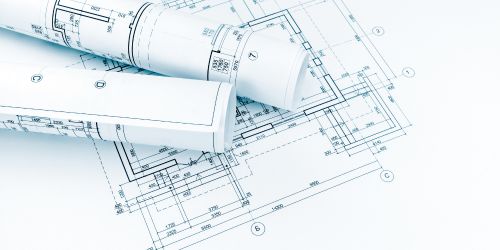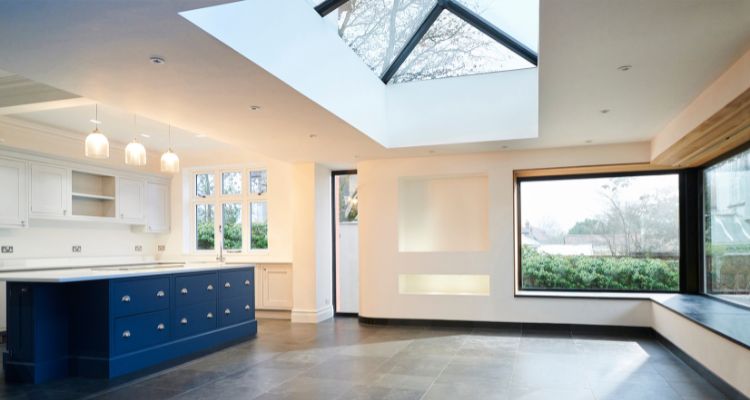How to Finance a House Extension
Financing a house extension is a significant decision that can transform your home, offering more space and potentially increasing its value. Before embarking on a home extension, you must understand the finance options available to you.
Renovation costs can range between $175,000 and $250,000 for a 50 square metre ground floor extension, so planning your budget is essential.
Exploring finance options for your house extension can lead to several possible pathways.
Traditional bank loans might be your go-to solution, with construction loans specifically tailored for such building projects. These allow you to capitalise on the existing equity in your property.
Some homeowners opt for loan top-ups or use existing equity to navigate the financial requirements of an extension.
Regardless of your chosen path, ensuring you have a comprehensive understanding of all associated costs, such as consent fees, GST, and architectural services, is important for a successful project.
Home Extension Financing

The best financing route for your home extension depends on your financial situation, credit rating, and current market conditions.
Always compare offers and consider the long-term implications of any borrowing you undertake.
Your budget will guide your decisions, but various paths can be taken to secure funds.
Home Improvement Loans: Specifically designed for renovations, home improvement loans often cater to larger amounts and longer repayment terms. These can be offered as secured or unsecured. Our team can help you find the best home improvement loan for your circumstances.
Mortgage Refinancing: This involves revising your existing mortgage or switching lenders to release equity. This can often secure a lower interest rate and spread repayments over the remaining term of your mortgage.
Mortgage Top-Up (Further Advance): Drawing additional funds from your current mortgage lender might be possible, often at a lower interest rate than a personal loan.
Second Mortgage: You could opt for a second charge mortgage, borrowing against the equity you’ve built in your home. It acts as a separate loan and may have different terms from your first mortgage.
Secured Charge Loan: This is akin to a second mortgage; however, it’s a separate loan and not tied to your current mortgage.
Savings: Using your savings is the most straightforward funding method since it does not incur interest rates. However, ensure it’s practical without depleting your emergency fund.
Personal Loan: An unsecured personal loan might be the answer for smaller projects. They usually require no collateral, but your credit score will influence your eligibility and the interest rate offered. Interest rates are generally higher, and loan terms are shorter.
Credit Cards: This could be cost-effective if the card offers 0% interest on purchases and you’re confident that you can repay the balance before the deal expires. Standard interest rates are high, so use credit cards cautiously.
Engaging with a mortgage broker can provide expert insights into the pros and cons when contemplating these options. Remember that fees and penalties, such as early repayment charges or set-up fees, may apply – we can assist with sourcing finance options that offer more flexibility. Also, the Consumer Credit Act offers some protections that don’t typically apply to mortgages.
Chat to a Financial Advisor About Financing Your House Extension (No Cost, No Obligation)

Please complete your contact information and one of our specialist New Zealand mortgage brokers will be in touch.
Planning and Designing Your Home Extension


When considering a house extension, thorough planning and a well-thought-out design are vital. These initial steps not only shape the physical space you’ll create but also have a significant impact on the value of your property
Identifying Your Space Needs:
Start by clarifying your functional requirements. Do you need an open-plan layout, a new kitchen, or an additional bedroom for your growing family? Understanding these needs will drive the design process.
Choosing an Architect:
Engage with an architect who aligns with your vision. Their expertise will translate your ideas into practical designs that respect your location and the local council regulations.
Understanding Consents:
In New Zealand, most extensions require building applications and possibly resource consent. Your architect and builder should assist you in navigating this process.
| Key Considerations | Details |
|---|---|
| Local Council Guidelines | Ensure compatibility with zoning rules and building codes. |
| Architect Selection | Look for a professional with a portfolio that resonates with your style. |
| Design and Functionality | Aim for a balance between aesthetics and practicality. |
| Long-term Value | Consider how the extension will affect resale value. |
Budgeting:
It’s essential to establish a budget early on. An architect can help you understand the costs of your renovation and what is feasible within your budget. Remember, good design can mean cost savings in the long run.
Before you finalise anything, ensure you understand any restrictions that might apply to your property depending on its heritage status or location. This comprehension of regulations will help you avoid unforeseen issues with local council consent.
Estimating Extension Costs


When planning your house extension project, begin with a comprehensive cost estimate to set a realistic budget. The cost of your extension will invariably hinge on its size, expressed in square metres, as well as the materials and complexity of the construction.
Key Factors
- Size of Extension: Larger areas typically entail higher costs.
- Materials Used: Standard materials are more affordable than premium options.
- Quality of Finishes: High-end finishes will significantly impact the budget.
- Construction Complexity: The more intricate the design, the higher the cost.
Rough Estimates
To give you a rough starting point for a basic extension, you might expect:
| Size (SQM) | Cost Range |
|---|---|
| 20 SQM | $70,000 – $110,000 |
| 50 SQM | $175,000 – $275,000 |
| 100 SQM | $350,000 – $550,000 |
Bear in mind that these figures are indicative, and the actual cost can vary. For a tailored estimate, consider consulting with professionals who can provide a detailed quote based on your specific requirements.
Planning Your Budget
Remember to factor in a contingent sum of around 10-20% on top of your initial estimate to accommodate unforeseen expenses during the build. Secure a detailed quotation from your builder or architect that outlines all expected costs to ensure the value of your extension justifies the investment.
Your ability to finance the extension ties back directly to a well-structured budget founded on an accurate cost projection.
Valuing Your Property Extension


When considering a house extension, careful valuation is key to ensuring that the added value to your property aligns with your investment.
Understanding the potential value a well-planned extension can add is essential to making informed financial decisions.
Firstly, assess the current market to gauge how similar properties with extensions are valued. Comparing your home with others in your neighbourhood that have undergone comparable improvements will give you a rough estimate of the added value you can expect.
To evaluate the value of your property post-extension, consider consulting with a professional valuer. They can provide a more accurate figure by assessing factors such as the additional square footage and extension type.
Below is a simplified checklist to guide you through valuing your house extension:
- Conduct market research on similar properties.
- Compute the cost-per-square metre of the extension against the property value increase.
- Factor in the specific features of your planned extension (e.g., an extra bedroom, a larger kitchen).
Remember, the added value can vary significantly; some extensions may yield a higher return on investment than others. Financially, it makes sense to plan an extension that harmonises with your home’s existing structure and appeal.
Talk to us about financing options for your project, such as home improvement loans or leveraging existing equity. Properly valuing your property extension will ensure it is a beneficial addition to your home and financial portfolio.
Making Informed Financial Decisions
When considering financing your house extension, weigh all options carefully. Your home’s equity can be a source of funds; however, understand that leveraging equity increases your mortgage and the amount you must repay.
- Mortgage Top-Up: You may be able to increase your existing mortgage to cover the extension costs, but this typically comes with higher repayments.
- Construction Loan: These loans are designed for building projects with staged funds available based on completed work after each inspection.
Interest rates are also a pivotal factor. Fixed-rate loans offer consistency in repayments, while variable rates may provide savings if rates decrease.
| Loan Type | Pros | Cons |
|---|---|---|
| Mortgage Top-Up | Utilise existing relationship with bank | Higher overall loan amount |
| Personal Loan | Fixed repayment plan | Higher interest rates |
| Construction Loan | Fund release aligned with project progress | Requires regular inspections |
Before signing with a contractor, ensure that you’ve received multiple quotes. Factor in all elements of the build, from the foundation to the exterior finish, including windows and doors. Consider traditional extensions and loft conversions, each with unique pros and cons.
Your location also matters; building upward may save on foundation costs but could incur more on structure and access.
At OneStop Financial Solutions, we have access to hundreds of home loan products. We aim to help you find the right product for your renovation or extension that aligns with your long-term financial strategy.
Chat to a Specialist About Financing Your House Extension (No Cost, No Obligation)




Please complete your contact information and one of our specialist New Zealand mortgage brokers will be in touch.

